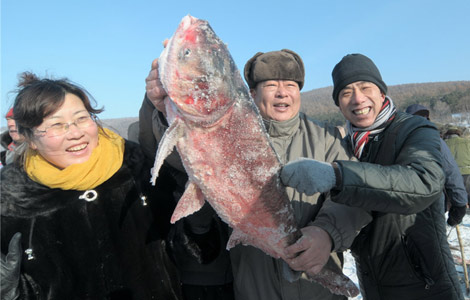Global retirement crisis looms
Updated: 2013-12-31 14:17
(Agencies)
|
|||||||||||
FINANCIAL CRISIS MAKES THINGS WORSE
The outlook worsened once the global banking system went into a panic in 2008 and tipped the world into the worst recession since the 1930s.
Government budget deficits swelled in Europe and the United States. Tax revenue shrank, and governments pumped money into rescuing their banks and financing unemployment benefits. All that escalated pressure on governments to reduce spending on pensions.
The Great Recession threw tens of millions out of work worldwide. For others, pay stagnated, making it harder to save. Because government retirement benefits are based on lifetime earnings, they'll now be lower.
The National Institute on Retirement Security estimates that Americans are at least $6.8 trillion short of what they need to have saved for a comfortable retirement. For those 55 to 64, the shortfall comes to $113,000 per household.
THE ASIA CHALLENGE
In Asia, workers are facing a different retirement worry, a byproduct of their astonishing economic growth.
Traditionally, Chinese and Koreans could expect their grown children to care for them as they aged. But newly prosperous young people increasingly want to live on their own.
China pays generous pensions to civil servants and urban workers. They can retire early with full benefits - at 60 for men and 50 or 55 for women.
But the elderly are rapidly becoming a bigger share of China's population because of a policy begun in 1979 and only recently relaxed that limited couples to one child.
THE END OF TRADITIONAL PENSIONS
Corporations are cutting pension costs by eliminating traditional defined-benefit plans. They've moved instead to so-called defined-contribution plans that shift responsibility for saving to employees.
But people don't always enroll. They don't contribute enough. They dip into the accounts when they need money.
Several countries are trying to coax workers to save more.
Australia passed a law in 1993 that makes retirement savings mandatory. Employers must contribute the equivalent of 9.25 percent of workers' wages to such retirement accounts.
In 2006, the United States encouraged companies to require employees to opt out instead of choosing to opt in. That means workers start saving for retirement automatically if they make no decision.
Related Stories
Why mandatory retirement age in Hong Kong should be extended 2013-12-23 05:57
Long-term retirement needs challenging 2013-12-13 06:43
Fair retirement extension 2013-12-12 08:16
China should raise retirement age 2013-12-10 18:42
Shuttler retires due to injury 2013-12-07 09:45
Today's Top News
Putin vows to annihilate "terrorists"
China to promote cultural soft power
Cities go live with air quality updates
Second kid 'easier said than done'
Russian police detain dozens after bombings
Death toll in Russia's bombings rises to 33
Xi's bun shop visit wows media
Global retirement crisis looms
Hot Topics
Lunar probe , China growth forecasts, Emission rules get tougher, China seen through 'colored lens', International board,
Editor's Picks

|

|

|

|

|

|





